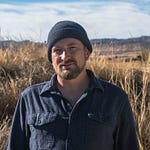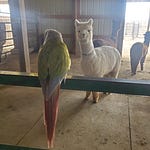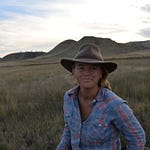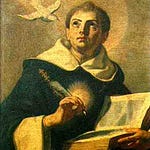I first learned of Joseph Seamon Cotter Jr. (1895-1919) by way of his poem, “A Prayer,” which appears in a small collection called The Band of Gideon and Other Lyrics, written when he was between 21 and 22 years old.
As I lie in bed,
Flat on my back;
There passes across my ceiling
An endless panorama of things—
Quick steps of gay-voiced children,
Adolescence in its wondering silences,
Maid and man on moonlit summer’s eve,
Women in the holy glow of Motherhood,
Old men gazing silently thru the twilight
Into the beyond.
O God, give me words to make my dream-children live.
The piece is a wonder of evocation and sincerity, made all the more stunning when we learn that Cotter contracted tuberculosis while in college and died less than a year after The Band of Gideon appeared, in 1918. (His older sister and best friend, Florence, died of the same illness one year earlier.)
In “A Prayer,” the work of the mind is work in the world. Cotter seems to be saying that the gift of life lies in the fact that we belong to it; to the extent that life belongs to us, we are to be stewards, not owners, and are ultimately tasked with matching life’s generosity: to make a gift of our very selves.
At first, it was the panentheistic1 “dream-children” that fascinated me most. What is this link between word, dream, and descendence (time, transmission)—what sort of physics is at work? How does the dream inhabit the word? Do dreams grow up into words, or vice versa?
We can read the procession of “things” as a vision, but Cotter is more radically awake than seeing alone would suggest: the “endless panorama” is not simply engineered by a restless brain, it is “there,” which is to say it is real. The poem insists: this is really happening. And we know it’s true, on a gut level: what we witness with Cotter is archetypally familiar.
What makes these lines so alive, to my mind, is the tenderness of Cotter’s apperception. The “quick steps of gay-voiced children” are buoyant in their syllables: metre is here raised from mere measure into music; the “gay-voices” literally become the poet’s vocation, and vice versa. Then, in the “wondering silences” of adolescence, we hear what cannot be spoken, again sensing a measure-beyond-measure in thrall to life.
All is bathed in (baptized by) a gentle luminescence—“moonlit,” “holy glow,” “twilight”—not the wrathful radiation of a dying star, or the wormy pitch of terrestrial darkness, but something temperate, a meeting in the middle. The clarity of verse belies the ineffability of this marriage, except for Cotter’s deft restatement of silence in the reverent, if no longer youthfully expectant gaze.
Suddenly, the syntax admits of a physics that explodes the (f)utility of ratiocination: that which exceeds also inheres: to go out, we must go in. And we go by poetry.
The epiphany detailed to perfection in the first ten lines is consecrated by holy paradox in the poem’s eleventh and final line: “O God, give me words to make my dream-children live.” The charity of Cotter’s epiphany is described by a metaphysics of grace: seemingly already possessed of words, the poet nevertheless seeks them. Cotter is not so much asking for something as welcoming that which wills to be given. To be a supplicant is to recognize the divine when it arrives. To pray is to listen.
*
Cotter’s clear and deep respect for existence—which can be taken to encompass both his personal heritage and the greater continuity of humankind—didn’t come out of nowhere. To the contrary, the precision of his metaphysics grew up out of the extraordinary pedagogy and community of his parents, particularly his father, Joseph Seamon Cotter Sr.
Born at the start of the Civil War to Michael J. Cotter, a white man, and Martha Vaughn, a free black woman (herself born to an enslaved African mother and an English-Cherokee father) in Nelson County, Kentucky, Joseph Seamon Cotter Sr. left school after the third grade in order to support his family by working in manual labor.
At 22, he enrolled in the newly established Louisville night school for black students, where he earned a diploma and teaching credentials in ten months. With these credentials and an autodidactic devotion to literature—derived, in no small part, from his mother’s own literary gifts—he would go on to make substantial contributions to black education locally and nationally, and publish some nine volumes of poetry and plays.
In the manuscripts and typescripts preserved at the Western Branch of the Louisville Free Public Library, evidence of Cotter Sr.’s careful engagement with his son’s poetry abounds. His expansive library—ranging across European and Afro-American traditions—was a source of inspiration. Keats was one of Cotter Jr.’s favorites: “He never tired of the ‘Ode on a Grecian Urn.’”2
*
There is much more, biographically and critically speaking, to recommend Cotter Jr., and it is well represented by professor James Robert Payne’s invaluable editorial work in/on the hard-to-find Complete Poems. But what, after all the above, are my own reasons for reciting and sharing a selection of Cotter’s poems, here and now?
First, each poem I’ve chosen to read—beginning with “A Prayer” and ending with two posthumously published sonnets—is possessed of the metaphysics described above. I think you will hear this and, provided I can get out of the way, recognize Cotter Jr.’s surpassing lyric gentleness.
Second, his poetry is attuned to the middle-ground between music and meaning, homeland of Logos; to paraphrase St. Benedict’s rule, he listened with the ear of his heart. These poems were made to be heard.
Third, in an America hellbent on bifurcation, obsessed with misrepresentation, and addicted to profit, it is no surprise that a voice so tender and nuanced, and proceeding from the personhood of multiracial experience, familial loss, and physical suffering, would be too-quickly forgotten. But Cotter Jr.’s voice is our deepest inheritance. Of silence, it speaks; of pain, it heals; of injustice, it unifies; of need, it welcomes. All these loving transmutations performed in such a foreshortened time.
Finally, I could not think of a better way to begin these interludes, which—punctuating the residency conversations—intend to celebrate the deep formal roots, the sound-sense, the “marrow-music”3 of American poetry. In an increasingly audible literary landscape, it feels good to recall the bounty of prior generations, how many voices can still be heard.
Playlist
0:10 - “A Prayer,” The Band of Gideon and Other Lyrics, Cornhill Company (1918)
1:05 - “Ego,” ibid.
2:50 - “Dreams,” ibid.
3:45 - “Sonnet,” ibid.
4:50 - “Sonnet,” ibid.
5:55 - “To Florence,” ibid.
6:50 - “XIX,” Out of the Shadows: An Unfinished Sonnet-Sequence, A.M.E. Zion Quarterly Review (posthumous, 1920)4
8:00 - “Sonnet,” Poems, ibid (posthumous, 1921)
These recordings are dedicated to my nephew, Auburn Wilson IV (1995-2022).
“Panentheism” is a constructed word composed of the English equivalents of the Greek terms “pan”, meaning all, “en”, meaning in, and “theism”, derived from the Greek ‘theos’ meaning God. Panentheism considers God and the world to be inter-related with the world being in God and God being in the world. (Stanford Encyclopedia of Philosophy)
From Cotter Sr.’s unpublished memoir, Joseph Seamon Cotter Jr., as related in James Robert Payne’s critical introduction to the Complete Poems (University of Georgia Press, 1990).
See: Robert Duncan, Ground Work: Before the War (1984)
The source of this episode’s title.












